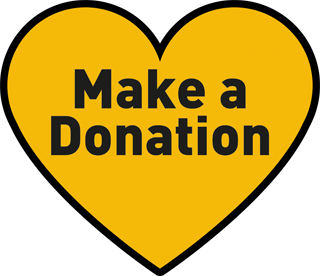Every year, in the countdown to the Lakes International Comic Art Festival in October, we bring you a series of interviews with guests at the event. This “Festival Focus” for 2019 is with Canadian illustrator and cartoonist Julie Rocheleau, who's perhaps best known for her graphic novel About Betty's Boob, published by Boom! Studios - and heads to Kendal this month as part of a Festival-organised Comics Cultural Exchange supported by the British Council and Quebec BD.
Julie worked in traditional animation for several years before devoting herself to books and comics. Her albums, fruit of collaborations with writers from many different backgrounds, have won numerous awards in Canada, France and elsewhere abroad.
She has also illustrated many novels for teen and children, and posters for cultural events.
She lives and works in Rosemont-La-Petite-Patrie, Montreal, but as part of a Comics Cultural Exchange which saw London based German-Japanese artist Mikiko head to Quebec in April, Julie is in Kendal this month for a one-month residency, as well as being one of many international guests at this year’s Lakes International Comic Art Festival in October.
The Exchange is the result of the Festival’s partnership with Quebec BD, funded by the British Council – and part of a rapidly expanding number of vital international alliances developed by the Festival team.
What are you working on, comics-wise, right now, and when will it be published?
Julie Rocheleau: I finished a new book last July! It will be available in Europe in January 2020, in French at first, and hopefully in English eventually. The title is Traverser l’autoroute (meaning "Crossing the Freeway"), the pathetic yet very touching and sometimes funny story of a father and son who can’t - or won’t - relate to each other. It’s written by Belgian-Quebecoise novelist Sophie Bienvenu, and published by La Pastèque.
I’m just starting to work on the next project, about a famous globetrotter! I should be out in late 2020 or early 2021. It’s too early to reveal more details, but it will be a lot of fun.
Meanwhile, I hope to have time to do many zines, art booklets, and the like.
Which comic project you've worked on are you most proud of and where can people see it or buy it?

Julie: It's a cliche to say it, but I’m proud of them all, for different reasons. They all come with new challenges.
To make things short, these are the two of my books currently available in English:
The Wrath of Fantômas trilogy (published in 2013, 2014 and 2015), written by Olivier Bocquet, might have been the toughest to do. It was dense, fast-paced, crazy stuff and I didn’t have much experience at that point. I have learned and matured since then, but still like what we did during those three intense formative years. The complete story was released in English by Titan Comics in 2017.
About Betty’s Boob (2017), written by Véro Cazot, is probably my best achievement and most well-known book that I've worked on so far. It is touching, funny, bizarre, and almost wordless, so I could explore storytelling in a different and, for me, more extravagant fashion. The US English edition was released in 2018, from Boom! Studios.
What's the best thing about being a comics creator?
Julie: Being my own boss, and creating something that I can share with everyone, that may touch people I have never met.
And the worst?
Julie: The usual desk-related health problems: shoulder and back pain, eye fatigue, etc. People who, whether in good faith or not, fail to recognise our work as a real profession, and fail to treat us a such with all the professional ethics that apply.
Sometimes it’s just annoying, sometimes it’s right down insulting, and usually a big loss of time.

What most distracts you from getting your work done?
Julie: Other projects that are not as urgent but are still screaming for attention; the Internet and my ADD.
Do you think it's easier or harder for young comic creators to get published today?
Julie: I don’t know if it is harder, but it is certainly different than, say, 20 years ago. Maybe getting into the traditional industry is harder, but there are many other ways to reach out and showcase your work, make books, build a fan base, and basically do more things by yourself.
Being published under a big label is not a guarantee of success either, and it’s is not the best system for everyone.
Have you ever been to the Lake District before and if so what did you think of it? If you haven't, what are you expecting?
Julie: I have never to the Lake District. I’m expecting gorgeous landscapes, and good times in some local pubs. All the rest will be surprises.
How do Festivals and other comics events help creators most, do you think?
Julie: Meeting your readers is certainly uplifting, and give you a different perspective on your work.
Meeting with your peers is incredibly helpful, since we usually work alone, each in our own bubble.
By meeting with other creators, from different ages, backgrounds, countries, we learn about different approaches on aesthetics, storytelling, techniques, how the industry works, discussing the good and the bad parts and how to find your place in it.
You can probably meet future collaborators, too. It really is essential.
Julie, thank you very much for your time. Looking forward to seeing you again in Kendal!
• The Lakes International Comic Art Festival returns to Kendal at various venues across the town 11th - 13th October 2019 | Buy Tickets | View the full Festival programme online or grab the Festival Guide as a free PDF download
• Tickets for the 2019 Festival are on Sale Now at www.comicartfestival.com/buy-tickets
• Web: www.comicartfestival.com | Facebook | Twitter | YouTube | Podcast
JULIE ROCHELEAU ONLINE
• Web: rocheleau.format.com
• Instagram: @julierocheleau
• Facebook


